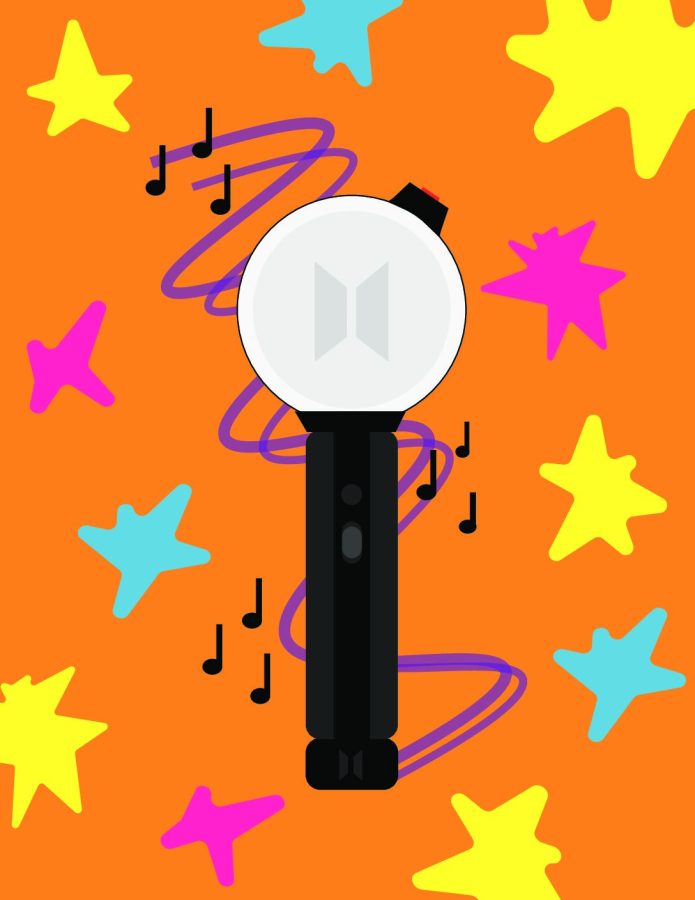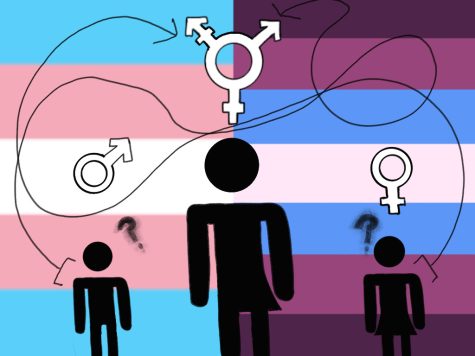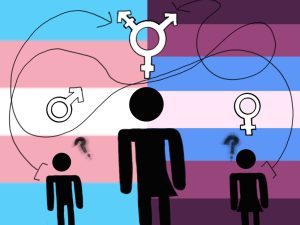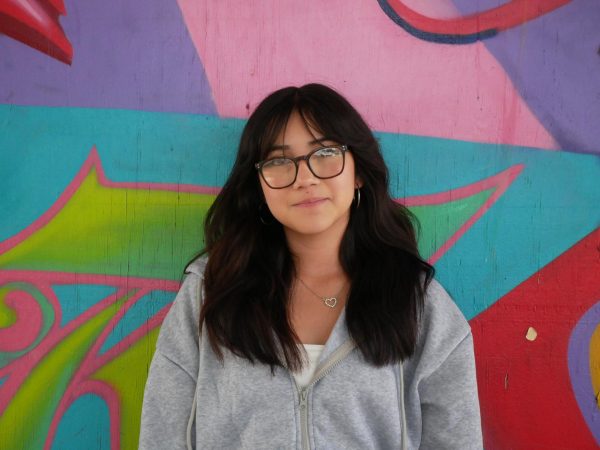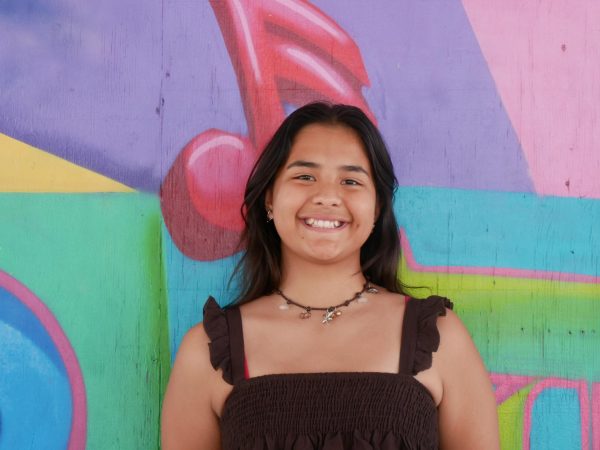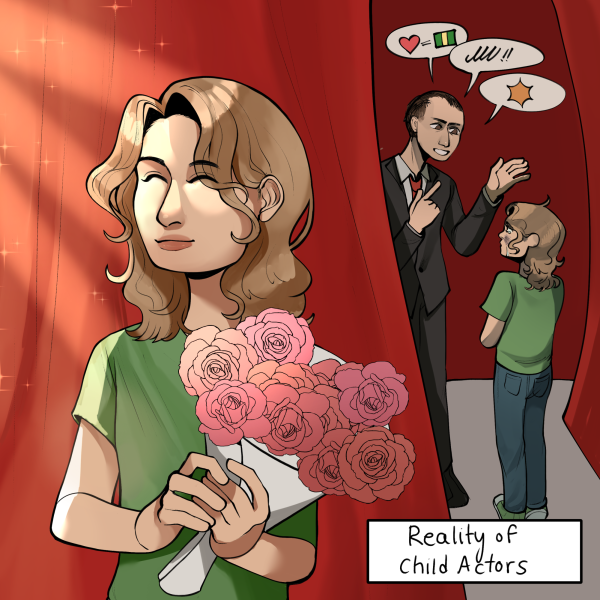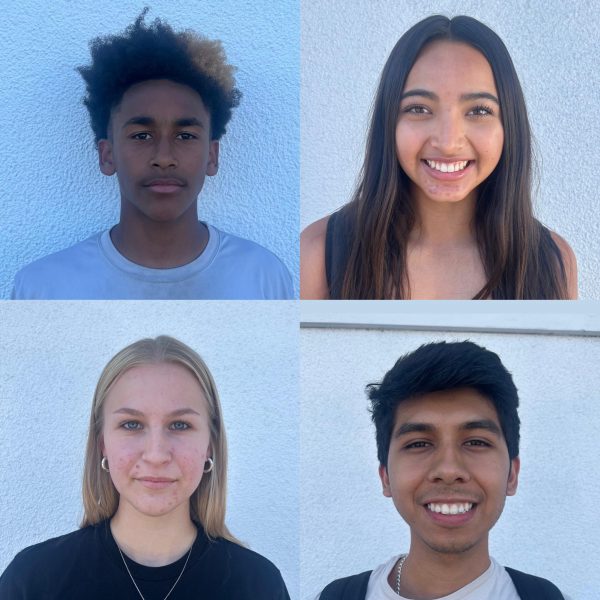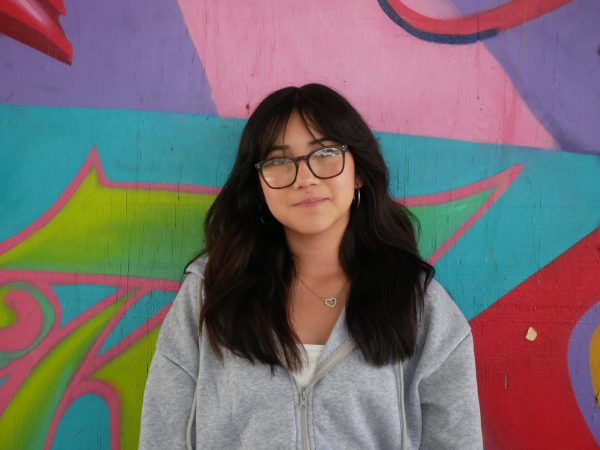Music transcends barriers
How listening to BTS taught me lessons like open-mindedness
BTS creates an immersive experience for all their fans by selling “ARMY Bombs” or light sticks at their concerts. The lights coordinate with each song they sing and connect to each seat in the stadium.
“We don’t need to worry / ‘Cause when we fall, we know how to land / Don’t need to talk the talk, just walk the walk tonight / ‘Cause we don’t need permission to dance,”—song lyrics that play on repeat in my head and memories associated with the song remain vivid as ever.
On Nov 29, I went to BTS’ Permission to Dance on Stage in Los Angeles concert at SoFi Stadium. BTS is a South-Korean boy band consisting of seven members, namely RM, Jin, Suga, J-Hope, Jimin, V and Jungkook. The group’s name, BTS, stands for the Korean phrase Bangtan Sonyeondan which translates to “Bulletproof Boy Scouts”. BTS member J-Hope told Affinity Magazine that the name signifies the group’s desire “to block out stereotypes, criticisms, and expectations that aim on adolescents like bullets.”
Starting in 2017, BTS earned a new definition for its acronym, “Beyond the Scene” according to Soompi, an English-language website providing coverage of Korean pop culture. BTS’s entertainment agency described that the new name is symbolic of youth who do not settle for their current reality but attempt to open doors of opportunities in an effort to achieve growth.
I idolize BTS because they use their talent and fame as a platform for advocacy. The band hopes to give voice to and motivate the youth. In fact, BTS has partnered with the United Nations Children’s Fund #ENDviolence campaign which has the goal of making the world a safer place for young people. BTS formed the ‘LOVE MYSELF’ campaign, raising over 2 million dollars and encouraging their fans all across the world to work on projects that upheld the same purpose as the campaign.
As a result of the COVID-19 pandemic, BTS had to postpone their concert dates set for the year 2020 so it has been about two years since they had their last concert. The experience was spontaneous. My sister’s friend got the tickets for me, my sister, her husband and roommate on the 29th of November, the day of the concert. When we arrived at the stadium, there was a sea of ARMY’s—BTS’ fandom name. The lines to get inside the stadium were as long as the distance from the Sun to Neptune. Therefore, we missed the first two songs of the concert. Though that didn’t matter because the moments during the actual concert were memorable.
When I got inside the stadium, I saw even more attendees. The entire place was filled with fans holding their ARMY Bombs—BTS’ official lightsticks; they illuminated the dark-lit stadium. During the concert, BTS performed numerous songs from their discography throughout the years.
I sang, danced, jumped and screamed; the experience was unforgettable because seeing them perform on stage was incomparable to watching them perform through my phone. The energy, vibe and overall experience were almost indescribable.
The concert lasted about two hours and then we headed straight to the nearest fast-food chain. As I was eating my chicken tenders from Canes, I reminisced about the performance in my head. I felt rejuvenated and grateful. Similar to how I destress myself from building legos, breathing mindfully and attending school-wide functions, watching BTS is also a way for me to relieve my worries and stresses.
I realized that the main response from some people, when faced with foreign media, is judgemental comments because they are unfamiliar. I would hear my peers say “Why do you listen to K-pop when you don’t even understand what they’re saying?”
Music is the universal language of mankind.
— Henry Wadsworth Longfellow
However, I learned that music has the ability to transcend language barriers. When listening to music or other forms of media from a different language, I set aside our differences and instead, celebrate them through appreciation. As American poet Henry Wadsworth Longfellow once put it “Music is the universal language of mankind.”
Going forward, I hope for more people to enjoy consuming foreign media regardless of what language they’re in. Because doing so can help them become more cognizant and open-minded of other cultures and practices. By immersing ourselves in other cultures apart from our own, we get to expand our horizons and broaden our perspectives, allowing us to better understand the world.
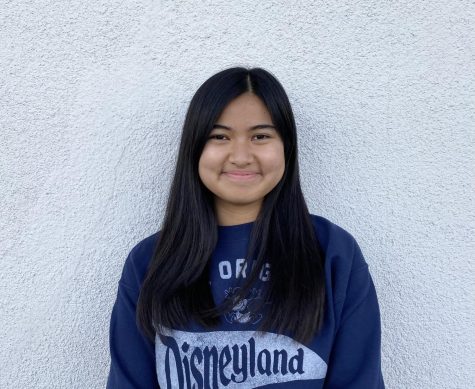
I am a senior at Bonita Vista High and a third year staff member on the Crusader. This year, I am co-Editor-in-Chief, and previously was Opinion Editor...

